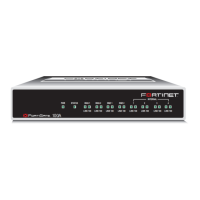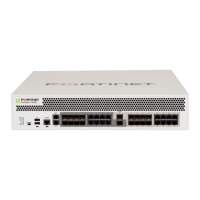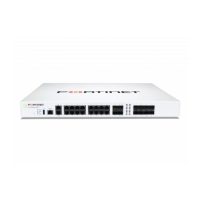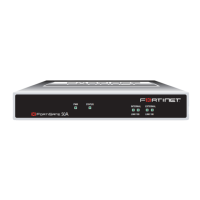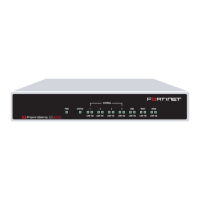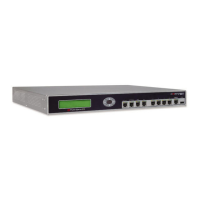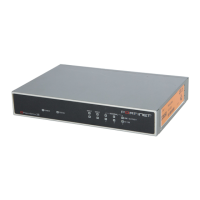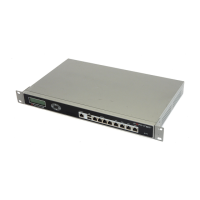VPN Dialup VPN
FortiGate-1000 Administration Guide 01-28006-0009-20041105 281
Dialup VPN
Dialup VPN allows remote users with dynamic IP addresses to use VPN to connect to
a private network. Dialup VPNs use AutoIKE and can be preshared key or certificate
VPNs.
To configure dialup VPN
1 Add a phase 1 configuration to define the parameters used to authenticate the remote
VPN peer.
2 Set Remote Gateway to Dialup user.
3 Set other phase 1 options as required.
See “Phase 1” on page 248.
4 Add the phase 2 configuration to define the parameters used to create and maintain
the AutoKey VPN tunnel.
See “Phase 2” on page 252.
5 Add the firewall configuration required for the VPN.
See “Adding firewall policies for IPSec VPN tunnels” on page 282.
6 Configure remote VPN clients with a matching IPSec VPN configuration.
Dynamic DNS VPN
Dynamic DNS VPN allows remote users or gateways with dynamic IP addresses to
use VPN to connect to a private network. In this case, the gateway or client at the
remote end of the VPN tunnel has a dynamic IP address, but the FortiGate unit can
get the IP address by looking up a domain name. The remote client or gateway uses
dynamic DNS to re-map this domain name to its IP address whenever the IP address
changes.
Dynamic DNS VPNs use AutoIKE and can be preshared key or certificate VPNs.
To configure dynamic DNS VPN
1 Add a phase 1 configuration to define the parameters used to authenticate the remote
VPN peer.
2 Set Remote Gateway to Dynamic DNS.
3 Enter the dynamic DNS domain name of the remote peer.
4 Set other phase 1 options as required.
See “Phase 1” on page 248.
5 Add the phase 2 configuration to define the parameters used to create and maintain
the AutoKey VPN tunnel.
See “Phase 2” on page 252.
6 Add the firewall configuration required for the VPN.
See “Adding firewall policies for IPSec VPN tunnels” on page 282.

